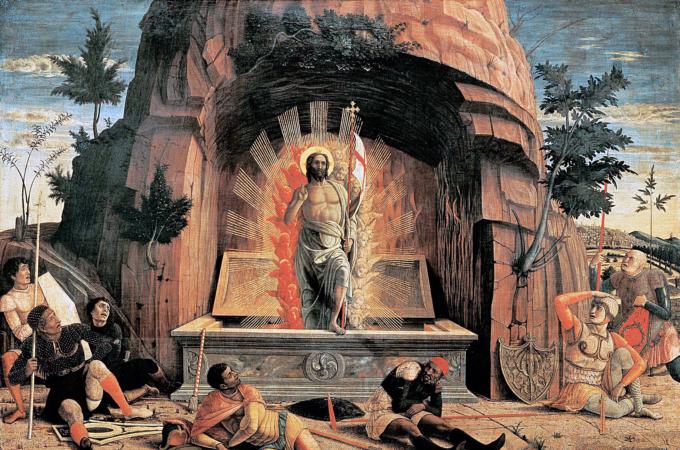Triumph of mercy
So suddenly here we are, at the heart of the Year of Mercy. And that is precisely what the Feast of Divine Mercy shows us: the blood and water that flowed from the pierced heart of Christ crucified radiates from the Risen Jesus as boundless mercy. In the battle between life and death, mercy has triumphed.
In the light of the Resurrection, we can see how much God wants to save us, and how far beyond the borders of human suffering he has gone to do so. The darkness of doubt and fear is shattered. God keeps his promises. He does not send another flood to destroy the earth and everything in it. Instead, he covers all creation with the love that glorifies wounds.
If the Son of God can conquer death by submitting himself to it; if he can grant forgiveness to those who do not know enough to ask for it; if he can promise paradise to a thief; then we need not worry. God is on our side. We have nothing to fear. He will not allow anything to separate us from him, anything, that is, except our own free wills.
Who would reject such mercy? And yet, so many do. I suspect it's because there is something inside us that craves a stingy god -- one who toys with our eternal destiny and licks the chops of his divine justice at the thought of our dramatic demise. But that is not the God who is God. It is an idol we have created and in many ways served. We are the ones who want to hold ourselves and each other captive to our sins and faults and failings. We are the ones who construct a god in our own unforgiving and relentlessly demanding image. He, however, came to liberate us; to separate every sinner from his sin. God's offer is not a demand; he himself has paid the price.
The appearances of Jesus after his Resurrection show us how the Lord intends to be with us. Jesus consoles Mary Magdalene at the tomb and comforts the disciples hiding in the Upper Room. He instructs the two disciples on the road to Emmaus, and counsels the doubting Thomas. He feeds hungry fishermen along the shores of Galilee, and forgives Peter's weakness. In short, the Risen Jesus continues the works of mercy and affirms them on both sides of the grave. It is because mercy reveals the very nature of the heart of God.
The disciples' encounters with the Risen Lord also reveal the kind of love God intends for us to show to one another. Again, it is mercy. The disciples do not judge one another's infidelities; instead, they recognize their own. They do not lecture Thomas, but allow Christ to reveal himself. They run back to Jerusalem from Emmaus with the news of how their hearts had burned within them as a stranger opened up the Scriptures to them on the road.
How can we live the Passion, Death, and Resurrection of Christ in our daily lives? There is only one answer: by embracing the mercy of God for us and for the whole world. That means turning away from judgment and toward our neighbors. It means looking at others -- and ourselves -- through the lens of the love God has for each one of us. It means burying our pride, our insecurities, and our expectations in the empty tomb, and sealing them behind the stone where all dead things belong.
Christ is risen, and mercy has subdued judgement! Christ is risen, and all our darkness is dispelled in the light that streams from his heart! Christ is risen, and he floods the earth with boundless compassion and love! Why would we want to do any less?
- Jaymie Stuart Wolfe is a Catholic convert, wife, and mother of eight. Inspired by the spirituality of St. Francis de Sales, she is an author, speaker, and musician, and serves as a senior editor at Ave Maria Press. Find Jaymie on Facebook or follow her on Twitter @YouFeedThem.



















